afterLoad (456.28KB) (9.29ms)
afterInitialise (1.27MB) (47.14ms)
afterRoute (870.41KB) (27.39ms)
beforeRenderComponent com_tags (21.13KB) (276μs)
afterRenderComponent com_tags (2.33MB) (271ms)
afterDispatch (65.07KB) (8.69ms)
beforeRenderRawModule mod_articles_category (READ MORE...) (372.12KB) (24.83ms)
Before Access::preloadComponents (all components) (56.7KB) (543μs)
After Access::preloadComponents (all components) (103.05KB) (3.51ms)
Before Access::getAssetRules (id:8 name:com_content) (840B) (21μs)
After Access::getAssetRules (id:8 name:com_content) (7.05KB) (42μs)
afterRenderRawModule mod_articles_category (READ MORE...) (5.08KB) (221ms)
beforeRenderRawModule mod_tags_popular (Search) (4.81KB) (27μs)
afterRenderRawModule mod_tags_popular (Search) (7.32KB) (137ms)
beforeRenderRawModule mod_custom (Remember to download Heart Healthy Seniors) (816B) (3.83ms)
afterRenderRawModule mod_custom (Remember to download Heart Healthy Seniors) (4.86KB) (216μs)
beforeRenderRawModule mod_custom (Get additionel and more detailed knowledge ) (752B) (14μs)
afterRenderRawModule mod_custom (Get additionel and more detailed knowledge ) (1.67KB) (26μs)
beforeRenderRawModule mod_custom (BOOST YOUR IMMUNE DEFENSE) (608B) (10μs)
afterRenderRawModule mod_custom (BOOST YOUR IMMUNE DEFENSE) (928B) (22μs)
beforeRenderRawModule mod_custom (Are you taking supplements) (736B) (9μs)
afterRenderRawModule mod_custom (Are you taking supplements) (1.03KB) (18μs)
beforeRenderRawModule mod_custom (Antiaging) (720B) (8μs)
afterRenderRawModule mod_custom (Antiaging) (1.02KB) (18μs)
beforeRenderRawModule mod_custom (Exercise) (720B) (9μs)
afterRenderRawModule mod_custom (Exercise) (1.02KB) (18μs)
beforeRenderRawModule mod_custom (Check this before you buy a Q10 product) (752B) (8μs)
afterRenderRawModule mod_custom (Check this before you buy a Q10 product) (944B) (18μs)
beforeRenderRawModule mod_custom (Chronic fatigue tied Alan to his bed but Q10 capsules saved him:) (245.53KB) (7.53ms)
afterRenderRawModule mod_custom (Chronic fatigue tied Alan to his bed but Q10 capsules saved him:) (960B) (40μs)
beforeRenderModule mod_custom (Chronic fatigue tied Alan to his bed but Q10 capsules saved him:) (768B) (4μs)
afterRenderModule mod_custom (Chronic fatigue tied Alan to his bed but Q10 capsules saved him:) (1.3KB) (69μs)
beforeRenderRawModule mod_custom (Cholesterol-lowering without side effects:) (368B) (12μs)
afterRenderRawModule mod_custom (Cholesterol-lowering without side effects:) (2.19KB) (23μs)
beforeRenderModule mod_custom (Cholesterol-lowering without side effects:) (752B) (2μs)
afterRenderModule mod_custom (Cholesterol-lowering without side effects:) (1.28KB) (33μs)
beforeRenderModule mod_articles_category (READ MORE...) (21.32KB) (345μs)
afterRenderModule mod_articles_category (READ MORE...) (1.25KB) (41μs)
beforeRenderModule mod_tags_popular (Search) (5.17KB) (13μs)
afterRenderModule mod_tags_popular (Search) (1.27KB) (25μs)
beforeRenderModule mod_custom (Remember to download Heart Healthy Seniors) (1.17KB) (11μs)
afterRenderModule mod_custom (Remember to download Heart Healthy Seniors) (1.3KB) (23μs)
beforeRenderModule mod_custom (Get additionel and more detailed knowledge ) (368B) (2.15ms)
afterRenderModule mod_custom (Get additionel and more detailed knowledge ) (1.3KB) (78μs)
beforeRenderModule mod_custom (BOOST YOUR IMMUNE DEFENSE) (224B) (20μs)
afterRenderModule mod_custom (BOOST YOUR IMMUNE DEFENSE) (1.28KB) (36μs)
beforeRenderModule mod_custom (Are you taking supplements) (352B) (14μs)
afterRenderModule mod_custom (Are you taking supplements) (1.28KB) (29μs)
beforeRenderModule mod_custom (Antiaging) (336B) (14μs)
afterRenderModule mod_custom (Antiaging) (1.27KB) (34μs)
beforeRenderModule mod_custom (Exercise) (336B) (13μs)
afterRenderModule mod_custom (Exercise) (1.25KB) (26μs)
beforeRenderModule mod_custom (Check this before you buy a Q10 product) (352B) (9μs)
afterRenderModule mod_custom (Check this before you buy a Q10 product) (1.28KB) (22μs)
beforeRenderRawModule mod_menu (Main menu-US) (20.94KB) (1.61ms)
afterRenderRawModule mod_menu (Main menu-US) (216.66KB) (2.46ms)
beforeRenderModule mod_menu (Main menu-US) (720B) (5μs)
afterRenderModule mod_menu (Main menu-US) (4.36KB) (67μs)
beforeRenderRawModule mod_languages (Sprogskift) (3.44KB) (19μs)
afterRenderRawModule mod_languages (Sprogskift) (26.8KB) (3.24ms)
beforeRenderModule mod_languages (Sprogskift) (720B) (6μs)
afterRenderModule mod_languages (Sprogskift) (5.31KB) (22μs)
beforeRenderRawModule mod_finder () (6.34KB) (10μs)
afterRenderRawModule mod_finder () (150.16KB) (5.56ms)
beforeRenderModule mod_finder () (704B) (5μs)
afterRenderModule mod_finder () (5.79KB) (34μs)
beforeRenderRawModule mod_custom () (6.62KB) (141μs)
afterRenderRawModule mod_custom () (22.66KB) (4.04ms)
beforeRenderModule mod_custom () (704B) (6μs)
afterRenderModule mod_custom () (1.23KB) (55μs)
beforeRenderRawModule mod_menu (Main menu-US) (5.07KB) (104μs)
afterRenderRawModule mod_menu (Main menu-US) (5.8KB) (1.61ms)
beforeRenderModule mod_menu (Main menu-US) (720B) (5μs)
afterRenderModule mod_menu (Main menu-US) (1.25KB) (59μs)
beforeRenderRawModule mod_languages (Sprogskift Mobil) (912B) (18μs)
afterRenderRawModule mod_languages (Sprogskift Mobil) (3.89KB) (1.74ms)
beforeRenderModule mod_languages (Sprogskift Mobil) (720B) (6μs)
afterRenderModule mod_languages (Sprogskift Mobil) (1.27KB) (38μs)
beforeRenderRawModule mod_finder () (2.3KB) (12μs)
afterRenderRawModule mod_finder () (6.29KB) (532μs)
beforeRenderModule mod_finder () (704B) (5μs)
afterRenderModule mod_finder () (1.23KB) (44μs)
beforeRenderRawModule mod_custom () (8.66KB) (197μs)
afterRenderRawModule mod_custom () (904B) (144μs)
beforeRenderModule mod_custom () (704B) (3μs)
afterRenderModule mod_custom () (2.43KB) (26μs)
beforeRenderRawModule mod_custom () (688B) (84μs)
afterRenderRawModule mod_custom () (896B) (94μs)
beforeRenderModule mod_custom () (704B) (2μs)
afterRenderModule mod_custom () (2.71KB) (22μs)
afterRender (420.21KB) (12.87ms)
| 1 x afterRenderComponent com_tags (2.33MB) (33.82%) | 271.02ms |
| 1 x afterRenderRawModule mod_articles_category (READ MORE...) (5.08KB) (27.57%) | 220.94ms |
| 1 x afterRenderRawModule mod_tags_popular (Search) (7.32KB) (17.11%) | 137.14ms |
| 1 x afterInitialise (1.27MB) (5.88%) | 47.14ms |
| 1 x afterRoute (870.41KB) (3.42%) | 27.39ms |
| 1 x beforeRenderRawModule mod_articles_category (READ MORE...) (372.12KB) (3.1%) | 24.83ms |
| 1 x afterRender (420.21KB) (1.61%) | 12.87ms |
| 1 x afterLoad (456.28KB) (1.16%) | 9.29ms |
| 1 x afterDispatch (65.07KB) (1.08%) | 8.69ms |
| 1 x beforeRenderRawModule mod_custom (Chronic fatigue tied Alan to his bed but Q10 capsules saved him:) (245.53KB) (0.94%) | 7.53ms |
| 1 x afterRenderRawModule mod_finder () (150.16KB) (0.69%) | 5.56ms |
| 1 x afterRenderRawModule mod_custom () (22.66KB) (0.5%) | 4.04ms |
| 1 x beforeRenderRawModule mod_custom (Remember to download Heart Healthy Seniors) (816B) (0.48%) | 3.83ms |
| 1 x After Access::preloadComponents (all components) (103.05KB) (0.44%) | 3.51ms |
| 1 x afterRenderRawModule mod_languages (Sprogskift) (26.8KB) (0.4%) | 3.24ms |
| 1 x afterRenderRawModule mod_menu (Main menu-US) (216.66KB) (0.31%) | 2.46ms |
| 1 x beforeRenderModule mod_custom (Get additionel and more detailed knowledge ) (368B) (0.27%) | 2.15ms |
| 1 x afterRenderRawModule mod_languages (Sprogskift Mobil) (3.89KB) (0.22%) | 1.74ms |
| 1 x beforeRenderRawModule mod_menu (Main menu-US) (20.94KB) (0.2%) | 1.61ms |
| 1 x afterRenderRawModule mod_menu (Main menu-US) (5.8KB) (0.2%) | 1.61ms |
| 1 x Before Access::preloadComponents (all components) (56.7KB) (0.07%) | 543μs |
| 1 x afterRenderRawModule mod_finder () (6.29KB) (0.07%) | 532μs |
| 1 x beforeRenderModule mod_articles_category (READ MORE...) (21.32KB) (0.04%) | 345μs |
| 1 x beforeRenderComponent com_tags (21.13KB) (0.03%) | 276μs |
| 1 x afterRenderRawModule mod_custom (Remember to download Heart Healthy Seniors) (4.86KB) (0.03%) | 216μs |
| 1 x beforeRenderRawModule mod_custom () (8.66KB) (0.02%) | 197μs |
| 1 x afterRenderRawModule mod_custom () (904B) (0.02%) | 144μs |
| 1 x beforeRenderRawModule mod_custom () (6.62KB) (0.02%) | 141μs |
| 1 x beforeRenderRawModule mod_menu (Main menu-US) (5.07KB) (0.01%) | 104μs |
| 1 x afterRenderRawModule mod_custom () (896B) (0.01%) | 94μs |
| 1 x beforeRenderRawModule mod_custom () (688B) (0.01%) | 84μs |
| 1 x afterRenderModule mod_custom (Get additionel and more detailed knowledge ) (1.3KB) (0.01%) | 78μs |
| 1 x afterRenderModule mod_custom (Chronic fatigue tied Alan to his bed but Q10 capsules saved him:) (1.3KB) (0.01%) | 69μs |
| 1 x afterRenderModule mod_menu (Main menu-US) (4.36KB) (0.01%) | 67μs |
| 1 x afterRenderModule mod_menu (Main menu-US) (1.25KB) (0.01%) | 59μs |
| 1 x afterRenderModule mod_custom () (1.23KB) (0.01%) | 55μs |
| 1 x afterRenderModule mod_finder () (1.23KB) (0.01%) | 44μs |
| 1 x After Access::getAssetRules (id:8 name:com_content) (7.05KB) (0.01%) | 42μs |
| 1 x afterRenderModule mod_articles_category (READ MORE...) (1.25KB) (0.01%) | 41μs |
| 1 x afterRenderRawModule mod_custom (Chronic fatigue tied Alan to his bed but Q10 capsules saved him:) (960B) (0%) | 40μs |
| 1 x afterRenderModule mod_languages (Sprogskift Mobil) (1.27KB) (0%) | 38μs |
| 1 x afterRenderModule mod_custom (BOOST YOUR IMMUNE DEFENSE) (1.28KB) (0%) | 36μs |
| 1 x afterRenderModule mod_finder () (5.79KB) (0%) | 34μs |
| 1 x afterRenderModule mod_custom (Antiaging) (1.27KB) (0%) | 34μs |
| 1 x afterRenderModule mod_custom (Cholesterol-lowering without side effects:) (1.28KB) (0%) | 33μs |
| 1 x afterRenderModule mod_custom (Are you taking supplements) (1.28KB) (0%) | 29μs |
| 1 x beforeRenderRawModule mod_tags_popular (Search) (4.81KB) (0%) | 27μs |
| 1 x afterRenderRawModule mod_custom (Get additionel and more detailed knowledge ) (1.67KB) (0%) | 26μs |
| 1 x afterRenderModule mod_custom (Exercise) (1.25KB) (0%) | 26μs |
| 1 x afterRenderModule mod_custom () (2.43KB) (0%) | 26μs |
| 1 x afterRenderModule mod_tags_popular (Search) (1.27KB) (0%) | 25μs |
| 1 x afterRenderRawModule mod_custom (Cholesterol-lowering without side effects:) (2.19KB) (0%) | 23μs |
| 1 x afterRenderModule mod_custom (Remember to download Heart Healthy Seniors) (1.3KB) (0%) | 23μs |
| 1 x afterRenderModule mod_custom () (2.71KB) (0%) | 22μs |
| 1 x afterRenderRawModule mod_custom (BOOST YOUR IMMUNE DEFENSE) (928B) (0%) | 22μs |
| 1 x afterRenderModule mod_custom (Check this before you buy a Q10 product) (1.28KB) (0%) | 22μs |
| 1 x afterRenderModule mod_languages (Sprogskift) (5.31KB) (0%) | 22μs |
| 1 x Before Access::getAssetRules (id:8 name:com_content) (840B) (0%) | 21μs |
| 1 x beforeRenderModule mod_custom (BOOST YOUR IMMUNE DEFENSE) (224B) (0%) | 20μs |
| 1 x beforeRenderRawModule mod_languages (Sprogskift) (3.44KB) (0%) | 19μs |
| 1 x afterRenderRawModule mod_custom (Are you taking supplements) (1.03KB) (0%) | 18μs |
| 1 x afterRenderRawModule mod_custom (Antiaging) (1.02KB) (0%) | 18μs |
| 1 x afterRenderRawModule mod_custom (Exercise) (1.02KB) (0%) | 18μs |
| 1 x afterRenderRawModule mod_custom (Check this before you buy a Q10 product) (944B) (0%) | 18μs |
| 1 x beforeRenderRawModule mod_languages (Sprogskift Mobil) (912B) (0%) | 18μs |
| 1 x beforeRenderRawModule mod_custom (Get additionel and more detailed knowledge ) (752B) (0%) | 14μs |
| 1 x beforeRenderModule mod_custom (Are you taking supplements) (352B) (0%) | 14μs |
| 1 x beforeRenderModule mod_custom (Antiaging) (336B) (0%) | 14μs |
| 1 x beforeRenderModule mod_tags_popular (Search) (5.17KB) (0%) | 13μs |
| 1 x beforeRenderModule mod_custom (Exercise) (336B) (0%) | 13μs |
| 1 x beforeRenderRawModule mod_custom (Cholesterol-lowering without side effects:) (368B) (0%) | 12μs |
| 1 x beforeRenderRawModule mod_finder () (2.3KB) (0%) | 12μs |
| 1 x beforeRenderModule mod_custom (Remember to download Heart Healthy Seniors) (1.17KB) (0%) | 11μs |
| 3 x beforeRenderModule mod_custom () (704B) (0%) | 11μs |
| 1 x beforeRenderRawModule mod_custom (BOOST YOUR IMMUNE DEFENSE) (608B) (0%) | 10μs |
| 2 x beforeRenderModule mod_menu (Main menu-US) (720B) (0%) | 10μs |
| 1 x beforeRenderRawModule mod_finder () (6.34KB) (0%) | 10μs |
| 2 x beforeRenderModule mod_finder () (704B) (0%) | 10μs |
| 1 x beforeRenderRawModule mod_custom (Are you taking supplements) (736B) (0%) | 9μs |
| 1 x beforeRenderModule mod_custom (Check this before you buy a Q10 product) (352B) (0%) | 9μs |
| 1 x beforeRenderRawModule mod_custom (Exercise) (720B) (0%) | 9μs |
| 1 x beforeRenderRawModule mod_custom (Antiaging) (720B) (0%) | 8μs |
| 1 x beforeRenderRawModule mod_custom (Check this before you buy a Q10 product) (752B) (0%) | 8μs |
| 1 x beforeRenderModule mod_languages (Sprogskift) (720B) (0%) | 6μs |
| 1 x beforeRenderModule mod_languages (Sprogskift Mobil) (720B) (0%) | 6μs |
| 1 x beforeRenderModule mod_custom (Chronic fatigue tied Alan to his bed but Q10 capsules saved him:) (768B) (0%) | 4μs |
| 1 x beforeRenderModule mod_custom (Cholesterol-lowering without side effects:) (752B) (0%) | 2μs |
 The number of older people is constantly increasing, and more and more people suffer from Alzheimer’s disease and other types of dementia. Apparently, seniors who take a daily multivitamin can improve their memory and slow down their cognitive decline, according to a meta-analysis that is published in Journal of Clinical Nutrition. Older people generally have increased need for certain vitamins and minerals because of poor nutrient absorption in the digestive system, impaired enzyme functions, oxidative stress, and regular use of medical drugs that can interact with the nutrients. But how do different vitamins and minerals affect brain health?
The number of older people is constantly increasing, and more and more people suffer from Alzheimer’s disease and other types of dementia. Apparently, seniors who take a daily multivitamin can improve their memory and slow down their cognitive decline, according to a meta-analysis that is published in Journal of Clinical Nutrition. Older people generally have increased need for certain vitamins and minerals because of poor nutrient absorption in the digestive system, impaired enzyme functions, oxidative stress, and regular use of medical drugs that can interact with the nutrients. But how do different vitamins and minerals affect brain health?







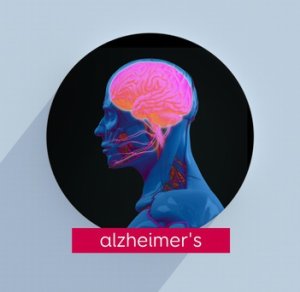 Science has found a link between unstable blood sugar levels, insulin resistance, type 2 diabetes, and an increased risk of developing Alzheimer’s disease (the leading cause of dementia). Type 2 diabetes is spreading like a bushfire, and people many are unware that they have early stages of the disease, typically characterized by fatigue, overweight, and cravings for fast carbohydrates or stimulants. People with Alzheimer’s disease have insulin resistance of the brain, which is why this disease is now referred to as type 3 diabetes. Because it takes many years for Alzheimer’s disease to develop, there is every reason in the world to start early prevention with exercise and a blood sugar-stabilizing diet. Also, a particular trace element may help increase insulin sensitivity, which is why it is vital to get enough of this nutrient.
Science has found a link between unstable blood sugar levels, insulin resistance, type 2 diabetes, and an increased risk of developing Alzheimer’s disease (the leading cause of dementia). Type 2 diabetes is spreading like a bushfire, and people many are unware that they have early stages of the disease, typically characterized by fatigue, overweight, and cravings for fast carbohydrates or stimulants. People with Alzheimer’s disease have insulin resistance of the brain, which is why this disease is now referred to as type 3 diabetes. Because it takes many years for Alzheimer’s disease to develop, there is every reason in the world to start early prevention with exercise and a blood sugar-stabilizing diet. Also, a particular trace element may help increase insulin sensitivity, which is why it is vital to get enough of this nutrient. Alzheimer’s disease causes brain malfunctions, and the condition is the leading cause of dementia. According to a studies of humans and mice, there may be a link between borderline vitamin A deficiency and an increased risk of Alzheimer’s disease. Vitamin A is important for the immune system, but it is also a powerful antioxidant that protects neurons and other cells. Vitamin A deficiencies are widespread globally. In the industrialized countries, we mainly see vitamin A deficiencies in connection with unbalanced diets, ageing, and chronic illness.
Alzheimer’s disease causes brain malfunctions, and the condition is the leading cause of dementia. According to a studies of humans and mice, there may be a link between borderline vitamin A deficiency and an increased risk of Alzheimer’s disease. Vitamin A is important for the immune system, but it is also a powerful antioxidant that protects neurons and other cells. Vitamin A deficiencies are widespread globally. In the industrialized countries, we mainly see vitamin A deficiencies in connection with unbalanced diets, ageing, and chronic illness. Lack of vitamin B12 and folic acid increases the risk of Alzheimer’s disease, which is because these B vitamins regulate blood levels of homocysteine that must be below a certain threshold. Apparently, men and women react differently to B vitamins and folic acid with regard to cognitive functions, according to a study that is published in Nutrients. The risk of developing Alzheimer’s disease is also lower among younger people and among those who drink tea or coffee. Unfortunately, many older people lack these particular B vitamins because of poor diet habits, low stomach acid, or the use of various medical drugs.
Lack of vitamin B12 and folic acid increases the risk of Alzheimer’s disease, which is because these B vitamins regulate blood levels of homocysteine that must be below a certain threshold. Apparently, men and women react differently to B vitamins and folic acid with regard to cognitive functions, according to a study that is published in Nutrients. The risk of developing Alzheimer’s disease is also lower among younger people and among those who drink tea or coffee. Unfortunately, many older people lack these particular B vitamins because of poor diet habits, low stomach acid, or the use of various medical drugs.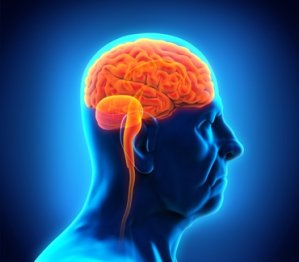 Studies show that large quantities of B vitamins are able to slow mild cognitive impairment, which is an early stage of dementia and Alzheimer's disease. A more recent study suggests, however, that B vitamins are not effective, unless the body is properly supplied with the omega-3 fatty acids that are found in fish oil.
Studies show that large quantities of B vitamins are able to slow mild cognitive impairment, which is an early stage of dementia and Alzheimer's disease. A more recent study suggests, however, that B vitamins are not effective, unless the body is properly supplied with the omega-3 fatty acids that are found in fish oil.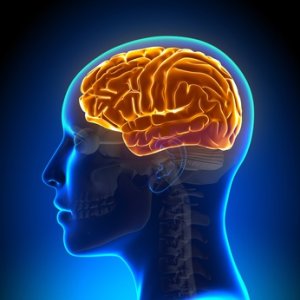 According to a new study from Melbourne's Swinburne University, supplementing with B vitamins gives you more vitality and surplus in mentally challenging situations, thereby reducing the subjective feeling of stress. The study is the first to use a special technique to reveal the circulatory flow through the brain.
According to a new study from Melbourne's Swinburne University, supplementing with B vitamins gives you more vitality and surplus in mentally challenging situations, thereby reducing the subjective feeling of stress. The study is the first to use a special technique to reveal the circulatory flow through the brain. Apparently so. According to a new study published in the journal Alzheimer’s and Dementia, older people who take a daily multivitamin supplement for several years are far less likely to develop dementia, Alzheimer’s disease, and other types of cognitive decline. The new study supports earlier research where it has been seen that the different vitamins and minerals increase cerebral blood flow and protect neurons. It pays off to choose high-quality supplements to make sure that the nutrients are properly absorbed in the body.
Apparently so. According to a new study published in the journal Alzheimer’s and Dementia, older people who take a daily multivitamin supplement for several years are far less likely to develop dementia, Alzheimer’s disease, and other types of cognitive decline. The new study supports earlier research where it has been seen that the different vitamins and minerals increase cerebral blood flow and protect neurons. It pays off to choose high-quality supplements to make sure that the nutrients are properly absorbed in the body.
 Choline is one of the B vitamins and is necessary for our central nervous system, energy turnover, lipid metabolism, and many other functions. It appears to be a somewhat forgotten nutrient, and science now links choline deficiency to Alzheimer’s disease and cardiovascular diseases, according to a study that is published in the journal Aging Cell.
Choline is one of the B vitamins and is necessary for our central nervous system, energy turnover, lipid metabolism, and many other functions. It appears to be a somewhat forgotten nutrient, and science now links choline deficiency to Alzheimer’s disease and cardiovascular diseases, according to a study that is published in the journal Aging Cell.
 The brain normally only uses blood sugar in the form of glucose. However, people suffering from insulin resistance have impaired cellular uptake of blood sugar, causing an energy shortage of the brain. According to a recent Israeli study, insulin resistance may speed up impairment of the cognitive functions that include the ability to think, speak, and solve problems. Because insulin resistance is an early stage of type-2 diabetes that spreads like an epidemic, there is every reason in the world to start preventing or treating this condition. A few dietary adjustments combined with a blood sugar-regulating trace element may do the trick.
The brain normally only uses blood sugar in the form of glucose. However, people suffering from insulin resistance have impaired cellular uptake of blood sugar, causing an energy shortage of the brain. According to a recent Israeli study, insulin resistance may speed up impairment of the cognitive functions that include the ability to think, speak, and solve problems. Because insulin resistance is an early stage of type-2 diabetes that spreads like an epidemic, there is every reason in the world to start preventing or treating this condition. A few dietary adjustments combined with a blood sugar-regulating trace element may do the trick.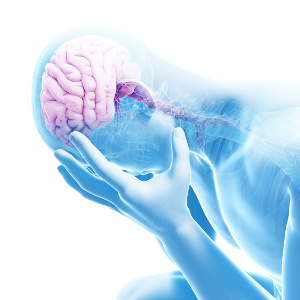 There is a link between depression, dementia and Alzheimer’s disease. Also, it appears that chronic stress contributes to oxidative stress and brain cell damage. In a review article that is published in the science journal Antioxidants, researchers look closer at how oxidative stress affects the brain. They also study how antioxidants can be included in the prevention and treatment of Alzheimer’s disease, and why the most promising results are seen with selenium, Q10, melatonin, vitamin E, turmeric, and polyphenols. With regard to depression, selenium, zinc, vitamin E, turmeric, and saffron have demonstrated the greatest potential.
There is a link between depression, dementia and Alzheimer’s disease. Also, it appears that chronic stress contributes to oxidative stress and brain cell damage. In a review article that is published in the science journal Antioxidants, researchers look closer at how oxidative stress affects the brain. They also study how antioxidants can be included in the prevention and treatment of Alzheimer’s disease, and why the most promising results are seen with selenium, Q10, melatonin, vitamin E, turmeric, and polyphenols. With regard to depression, selenium, zinc, vitamin E, turmeric, and saffron have demonstrated the greatest potential.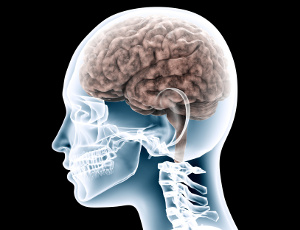 Neuroplasticity refers to the brain ability of brain cells to carry out structural and functional changes that are of vital importance to our development and health. It has been shown that neuroplasticity is impaired in connection with various diseases of the central nervous system, including such conditions as depression and dementia. In a review article that is published in Brain Plasticity, scientists have looked closer at how exercise, the Mediterranean diet, and nutrients like omega-3 and vitamin B12 can improve neuroplasticity by way of a protein called BDNF (brain-derived neurotrophic factor). Selenium is also known to be important for the formation of new brain cells, which can help prevent cognitive decline via other mechanisms.
Neuroplasticity refers to the brain ability of brain cells to carry out structural and functional changes that are of vital importance to our development and health. It has been shown that neuroplasticity is impaired in connection with various diseases of the central nervous system, including such conditions as depression and dementia. In a review article that is published in Brain Plasticity, scientists have looked closer at how exercise, the Mediterranean diet, and nutrients like omega-3 and vitamin B12 can improve neuroplasticity by way of a protein called BDNF (brain-derived neurotrophic factor). Selenium is also known to be important for the formation of new brain cells, which can help prevent cognitive decline via other mechanisms. The number of seniors in the world is growing steadily which means a surge in problems like cardiovascular disease, cancer, respiratory illnesses, overweight, diabetes, rheumatism, dementia, and Alzheimer’s disease. These diseases that have a widespread impact on human lives and are a burden to society are often linked to chronic inflammation. A group of scientists therefore decided to look closer at studies that have found a positive effect of the omega-3 fatty acids EPA and DHA on cognitive functioning, maintenance of muscle mass, and prevention and treatment of a host of serious diseases that are related to ageing. It is vital to start supplementing early and to take the right doses, according to the new review article published in Nutrients.
The number of seniors in the world is growing steadily which means a surge in problems like cardiovascular disease, cancer, respiratory illnesses, overweight, diabetes, rheumatism, dementia, and Alzheimer’s disease. These diseases that have a widespread impact on human lives and are a burden to society are often linked to chronic inflammation. A group of scientists therefore decided to look closer at studies that have found a positive effect of the omega-3 fatty acids EPA and DHA on cognitive functioning, maintenance of muscle mass, and prevention and treatment of a host of serious diseases that are related to ageing. It is vital to start supplementing early and to take the right doses, according to the new review article published in Nutrients.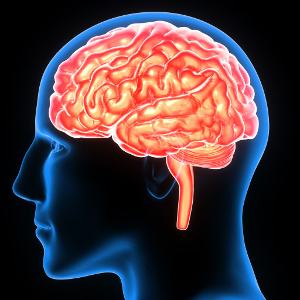 Fish oil contains EPA and DHA, two omega-3 fatty acids with a number of different functions in the brain and nervous system. It appears that middle-aged people who consume more oily fish or who take fish oil supplements have improvements in their brain structure and cognitive skills. This was shown in a study that is published in Neurology. The study results are quite interesting because cognitive decline and dementia are increasing problems that affect millions of people worldwide. The study supports previous research where it was seen that having higher concentrations of DHA in the red blood cell can reduce the risk of Alzheimer’s disease by 50 percent.
Fish oil contains EPA and DHA, two omega-3 fatty acids with a number of different functions in the brain and nervous system. It appears that middle-aged people who consume more oily fish or who take fish oil supplements have improvements in their brain structure and cognitive skills. This was shown in a study that is published in Neurology. The study results are quite interesting because cognitive decline and dementia are increasing problems that affect millions of people worldwide. The study supports previous research where it was seen that having higher concentrations of DHA in the red blood cell can reduce the risk of Alzheimer’s disease by 50 percent. Vitamin B3 plays a crucial role in our brain and nervous system, and it is also important for our mental well-being. Studies suggest that lack of vitamin B3 increases the risk of dementia, Alzheimer’s disease, Parkinson’s disease, and schizophrenia. Moreover, epidemiological studies show that diets without vitamin B3 in them tend to cause aggression and an increased rate of homicide. Too little B3 can be caused by dietary shortages and environmental factors, but it also appears that some people have an increased need for the nutrient due to genetic variations and problems with utilizing the vitamin.
Vitamin B3 plays a crucial role in our brain and nervous system, and it is also important for our mental well-being. Studies suggest that lack of vitamin B3 increases the risk of dementia, Alzheimer’s disease, Parkinson’s disease, and schizophrenia. Moreover, epidemiological studies show that diets without vitamin B3 in them tend to cause aggression and an increased rate of homicide. Too little B3 can be caused by dietary shortages and environmental factors, but it also appears that some people have an increased need for the nutrient due to genetic variations and problems with utilizing the vitamin. Brain cells (neurons) contain comparatively large concentrations of vitamin C, a nutrient that helps us maintain a healthy nervous system in a number of different ways. Scientists have discovered that lack of vitamin C can affect the brain’s neural signaling. Consequently, a vitamin C deficiency can impair memory and other cognitive skills in seniors. This was demonstrated in a study from Flinders University in Australia. Mild cognitive impairment is widespread among older people and represents an early stage of dementia so it is important to get plenty of vitamin C every day throughout life.
Brain cells (neurons) contain comparatively large concentrations of vitamin C, a nutrient that helps us maintain a healthy nervous system in a number of different ways. Scientists have discovered that lack of vitamin C can affect the brain’s neural signaling. Consequently, a vitamin C deficiency can impair memory and other cognitive skills in seniors. This was demonstrated in a study from Flinders University in Australia. Mild cognitive impairment is widespread among older people and represents an early stage of dementia so it is important to get plenty of vitamin C every day throughout life. ch reveals that the human brain is detoxified during our sleep. On the other hand, toxins accumulate in the brain if we suffer from sleep disturbances, increasing our risk of dementia, Alzheimer’s disease, stroke, and numerous other conditions. If you are not helped by the most common guidelines for better sleep, supplementing with the “sleep hormone” melatonin may be an obvious solution that even offers plenty of positive “side effects.”
ch reveals that the human brain is detoxified during our sleep. On the other hand, toxins accumulate in the brain if we suffer from sleep disturbances, increasing our risk of dementia, Alzheimer’s disease, stroke, and numerous other conditions. If you are not helped by the most common guidelines for better sleep, supplementing with the “sleep hormone” melatonin may be an obvious solution that even offers plenty of positive “side effects.”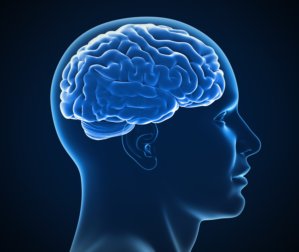
 The number of older people is on the rise, and so is the number of people who suffer from dementia and die as a result of this condition. If you increase your dietary intake of magnesium, however, and get more than what is officially recommended, it helps keep your brain sharp and prevents dementia, according to a large population study that is published in European Journal of Nutrition. Many older people don’t eat enough and even take different kinds of medicine that block the body’s uptake and utilization of magnesium. So, how does magnesium affect the brain and nervous system? And how much do we need to stay mentally alert throughout life? Those are the questions.
The number of older people is on the rise, and so is the number of people who suffer from dementia and die as a result of this condition. If you increase your dietary intake of magnesium, however, and get more than what is officially recommended, it helps keep your brain sharp and prevents dementia, according to a large population study that is published in European Journal of Nutrition. Many older people don’t eat enough and even take different kinds of medicine that block the body’s uptake and utilization of magnesium. So, how does magnesium affect the brain and nervous system? And how much do we need to stay mentally alert throughout life? Those are the questions.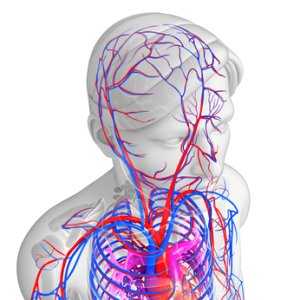 People with elevated levels of omega-3 fatty acids in their blood have better circulation in those parts of the brain that handle learning, language, memory, and other cognitive functions, according to a recent report that is published in the Journal of Alzheimer’s Disease. The scientists also observed a link between blood levels of omega-3 and the rate of dementia and depression. They call their study an important discovery that supports earlier studies, which have shown how simple dietary adjustments such as increasing your intake of oily fish or fish oil supplements help preserve mental skills and a healthy mind.
People with elevated levels of omega-3 fatty acids in their blood have better circulation in those parts of the brain that handle learning, language, memory, and other cognitive functions, according to a recent report that is published in the Journal of Alzheimer’s Disease. The scientists also observed a link between blood levels of omega-3 and the rate of dementia and depression. They call their study an important discovery that supports earlier studies, which have shown how simple dietary adjustments such as increasing your intake of oily fish or fish oil supplements help preserve mental skills and a healthy mind. Neurological diseases are on the rise and Alzheimer’s disease is one of the leading causes of dementia. Now, scientists from Boston University have discovered that slow-moving brain waves during our sleep initiate a cleansing process in the brain that protects against Alzheimer’s disease, dementia, and other neurological disorders. Also, a study of men conducted by scientists from Uppsala University in Sweden demonstrated that as little as a single night without sleep increases levels of proteins that serve as biomarkers of Alzheimer’s disease. It is therefore essential to sleep properly every single night so that we can remain mentally alert and vital. In cases where the normal guidelines for healthy sleep prove to be of little use, supplementing with the “sleep hormone” melatonin may turn out to offer relief.
Neurological diseases are on the rise and Alzheimer’s disease is one of the leading causes of dementia. Now, scientists from Boston University have discovered that slow-moving brain waves during our sleep initiate a cleansing process in the brain that protects against Alzheimer’s disease, dementia, and other neurological disorders. Also, a study of men conducted by scientists from Uppsala University in Sweden demonstrated that as little as a single night without sleep increases levels of proteins that serve as biomarkers of Alzheimer’s disease. It is therefore essential to sleep properly every single night so that we can remain mentally alert and vital. In cases where the normal guidelines for healthy sleep prove to be of little use, supplementing with the “sleep hormone” melatonin may turn out to offer relief.
 Q10 is a unique compound with a key role in cellular energy turnover. It also serves as a powerful antioxidant. The body is able to synthesize most of the Q10 that it needs but as we grow older, our endogenous synthesis decreases, making us vulnerable in different ways. Cholesterol-lowering medicine and certain types of disease are also associated with lower levels of Q10 in the body. In a new review article, a group of scientists have scrutinized hundreds of Q10 studies that have been published in the years 2010-2020. They are able to conclude that Q10 is of particular importance to the heart, circulatory system, fertility, muscles, eyes and vision, and the ageing process. Things like migraines, chronic fatigue syndrome, and neurodegenerative diseases such as Parkinson’s and Alzheimer’s disease are also addressed. The body has difficulty with absorbing Q10 from food and supplements so it is recommendable to always choose a pharmaceutical-grade Q10 preparation with documented bioavailability.
Q10 is a unique compound with a key role in cellular energy turnover. It also serves as a powerful antioxidant. The body is able to synthesize most of the Q10 that it needs but as we grow older, our endogenous synthesis decreases, making us vulnerable in different ways. Cholesterol-lowering medicine and certain types of disease are also associated with lower levels of Q10 in the body. In a new review article, a group of scientists have scrutinized hundreds of Q10 studies that have been published in the years 2010-2020. They are able to conclude that Q10 is of particular importance to the heart, circulatory system, fertility, muscles, eyes and vision, and the ageing process. Things like migraines, chronic fatigue syndrome, and neurodegenerative diseases such as Parkinson’s and Alzheimer’s disease are also addressed. The body has difficulty with absorbing Q10 from food and supplements so it is recommendable to always choose a pharmaceutical-grade Q10 preparation with documented bioavailability.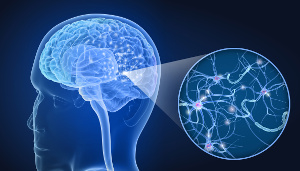 It’s commonly known that physical activity boosts the brain’s ability to form new brain cells – or neurons. Still, the underlying mechanisms have been a mystery to science. A team of Australian scientists, however, has recently discovered that, during exercise, mice produce a selenium-containing protein that helps the brain synthesize new brain cells. The scientists consider this to be a rather fantastic study, and it is assumed that selenium therapy may be used in the future to prevent and treat cognitive decline in people who are unable to carry out physical exercise or in those likely to be selenium-deficient. This is particularly relevant for Alzheimer’s patients and people who have suffered a stroke. It should be added that it can be quite a challenge to get enough selenium from an otherwise balanced diet in our part of the world.
It’s commonly known that physical activity boosts the brain’s ability to form new brain cells – or neurons. Still, the underlying mechanisms have been a mystery to science. A team of Australian scientists, however, has recently discovered that, during exercise, mice produce a selenium-containing protein that helps the brain synthesize new brain cells. The scientists consider this to be a rather fantastic study, and it is assumed that selenium therapy may be used in the future to prevent and treat cognitive decline in people who are unable to carry out physical exercise or in those likely to be selenium-deficient. This is particularly relevant for Alzheimer’s patients and people who have suffered a stroke. It should be added that it can be quite a challenge to get enough selenium from an otherwise balanced diet in our part of the world.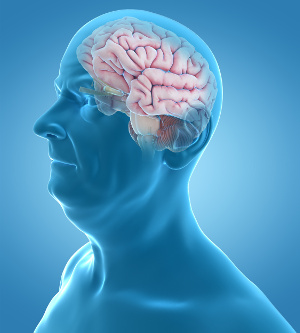 There seems to be a relation between ageing, Alzheimer’s disease, and the widespread problems with selenium deficiency. According to a new study that is published in Antioxidants, scientist have revealed how different selenium-containing proteins can affect pathological processes in the brain that are known to cause Alzheimer’s disease. They believe selenium may have therapeutical potential in the treatment of this disease, which is one of the greatest disease burdens and a leading cause of death among seniors. Selenium also helps in the prevention of the disease, which is extremely important because it is often difficult to diagnose Alzheimer’s disease in its early stages.
There seems to be a relation between ageing, Alzheimer’s disease, and the widespread problems with selenium deficiency. According to a new study that is published in Antioxidants, scientist have revealed how different selenium-containing proteins can affect pathological processes in the brain that are known to cause Alzheimer’s disease. They believe selenium may have therapeutical potential in the treatment of this disease, which is one of the greatest disease burdens and a leading cause of death among seniors. Selenium also helps in the prevention of the disease, which is extremely important because it is often difficult to diagnose Alzheimer’s disease in its early stages. ut very interesting study of 33 elderly people suggest that intake of omega-3 fatty acids may slow a biological key process in the body's cells associated with the aging process. If the result is confirmed, it could make fish oil a big hit in anti-aging.
ut very interesting study of 33 elderly people suggest that intake of omega-3 fatty acids may slow a biological key process in the body's cells associated with the aging process. If the result is confirmed, it could make fish oil a big hit in anti-aging.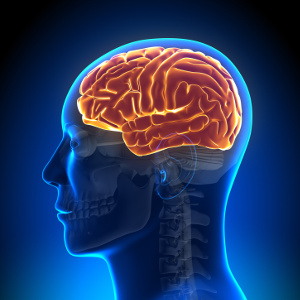 Alzheimer’s is a growing health burden worldwide, and diet appears to play a major role. A large meta-analysis published in Frontiers in Aging Neuroscience recently revealed that patients with Alzheimer’s disease have lower levels of magnesium in their blood and cerebrospinal fluid compared to healthy controls. This suggests that being magnesium-deficient may be a risk factor in Alzheimer’s disease.
Alzheimer’s is a growing health burden worldwide, and diet appears to play a major role. A large meta-analysis published in Frontiers in Aging Neuroscience recently revealed that patients with Alzheimer’s disease have lower levels of magnesium in their blood and cerebrospinal fluid compared to healthy controls. This suggests that being magnesium-deficient may be a risk factor in Alzheimer’s disease. Undernourishment typically affects the elderly, those with diseases, addicts, and people with eating disorders. The condition increases the risk of serious diseases and repeated hospitalizations and is an enormous economic burden to society. Many undernourished people suffer from loss of appetite, a problem that can often be stimulated with improved diets and supplements of B vitamins.
Undernourishment typically affects the elderly, those with diseases, addicts, and people with eating disorders. The condition increases the risk of serious diseases and repeated hospitalizations and is an enormous economic burden to society. Many undernourished people suffer from loss of appetite, a problem that can often be stimulated with improved diets and supplements of B vitamins. Alcohol is one of the most compromising factors when it comes to public health, and alcohol abuse comes at an enormous cost, both to the individual and to society. A large alcohol consumption contributes as a factor to insidious dementia, but according to a new study from Taiwan, supplementing with vitamin B1 (thiamine) may prevent alcohol-induced dementia. The scientists that have conducted the study therefore point to vitamin B1 supplementation as having an important role in the treatment plan for people with alcohol abuse problems and to prevent dementia from developing or progressing.
Alcohol is one of the most compromising factors when it comes to public health, and alcohol abuse comes at an enormous cost, both to the individual and to society. A large alcohol consumption contributes as a factor to insidious dementia, but according to a new study from Taiwan, supplementing with vitamin B1 (thiamine) may prevent alcohol-induced dementia. The scientists that have conducted the study therefore point to vitamin B1 supplementation as having an important role in the treatment plan for people with alcohol abuse problems and to prevent dementia from developing or progressing.
 Alzheimer’s disease causes the brain to malfunction and is therefore the leading cause of dementia. According to a new American study, a particular form of vitamin B3 may help prevent neurological damage and therefore has a positive impact on Alzheimer’s patients. As part of the prevention of this disease, it is also important to make sure to get plenty of all the other nutrients.
Alzheimer’s disease causes the brain to malfunction and is therefore the leading cause of dementia. According to a new American study, a particular form of vitamin B3 may help prevent neurological damage and therefore has a positive impact on Alzheimer’s patients. As part of the prevention of this disease, it is also important to make sure to get plenty of all the other nutrients. Dementia is on the rise across the globe but according to a study from University of South Australia, vitamin D may have the potential to pull the brake on the degenerative processes. The scientists have observed a direct link between the widespread problems with vitamin D deficiency and the increasing rate of dementia. At the same time, they assume that optimizing people’s vitamin D status in the blood may help prevent millions of dementia cases worldwide. The need for vitamin D varies from person to person, it should be noted, and many people have a higher need for the vitamin than what is officially recommended.
Dementia is on the rise across the globe but according to a study from University of South Australia, vitamin D may have the potential to pull the brake on the degenerative processes. The scientists have observed a direct link between the widespread problems with vitamin D deficiency and the increasing rate of dementia. At the same time, they assume that optimizing people’s vitamin D status in the blood may help prevent millions of dementia cases worldwide. The need for vitamin D varies from person to person, it should be noted, and many people have a higher need for the vitamin than what is officially recommended. - are you getting enough, though?
- are you getting enough, though? The number of older people is increasing rapidly, which means more and more people suffer from different types of dementia. Vitamin D supplementation may help prevent dementia or delay its progression, according to a population study that is published in Alzheimer’s & Dementia: Diagnosis, Assessment & Disease Monitoring. It is important to have optimal blood levels of the nutrient throughout life, simply because it often takes years for dementia to develop, and because vitamin D has many different functions that are relevant for brain health.
The number of older people is increasing rapidly, which means more and more people suffer from different types of dementia. Vitamin D supplementation may help prevent dementia or delay its progression, according to a population study that is published in Alzheimer’s & Dementia: Diagnosis, Assessment & Disease Monitoring. It is important to have optimal blood levels of the nutrient throughout life, simply because it often takes years for dementia to develop, and because vitamin D has many different functions that are relevant for brain health. Vitamin D plays a major role in our health. The main focus, however, is on vitamin D’s importance for bones, while many health professionals are totally unaware of the nutrient’s other essential functions. According to a review article published in Nutrients, half the global population has low vitamin D levels in the blood, which increases the risk of cardiovascular disease, hypertension, cancer, type 2 diabetes, Alzheimer’s disease, respiratory infections like COVID-19, and early death. The authors also mention that vitamin D science is often inadequate or misleading because studies focus on supplementation rather than looking at blood levels of 25(OH)D. Consequently, trials are often made with far too small vitamin D doses or with too a short a trial period. In either case, blood levels of vitamin D fail to reach their optimum. What is more, levels of 25(OH)D in the blood should ideally be above 75 nmol/L in order to protect against cardiovascular disease, cancer, and early death. Because this threshold level is higher than the official threshold levels, the scientists recommend high-dosed vitamin D levels as a way to reach an optimal nutrient status.
Vitamin D plays a major role in our health. The main focus, however, is on vitamin D’s importance for bones, while many health professionals are totally unaware of the nutrient’s other essential functions. According to a review article published in Nutrients, half the global population has low vitamin D levels in the blood, which increases the risk of cardiovascular disease, hypertension, cancer, type 2 diabetes, Alzheimer’s disease, respiratory infections like COVID-19, and early death. The authors also mention that vitamin D science is often inadequate or misleading because studies focus on supplementation rather than looking at blood levels of 25(OH)D. Consequently, trials are often made with far too small vitamin D doses or with too a short a trial period. In either case, blood levels of vitamin D fail to reach their optimum. What is more, levels of 25(OH)D in the blood should ideally be above 75 nmol/L in order to protect against cardiovascular disease, cancer, and early death. Because this threshold level is higher than the official threshold levels, the scientists recommend high-dosed vitamin D levels as a way to reach an optimal nutrient status. A high dose of vitamin E daily has in a double - blind, placebo-controlled study shown to reduce the progression of Alzheimer's disease by 19% compared with placebo in elderly people who had the disease in mild to moderate degree.
A high dose of vitamin E daily has in a double - blind, placebo-controlled study shown to reduce the progression of Alzheimer's disease by 19% compared with placebo in elderly people who had the disease in mild to moderate degree. The risk of dementia and neurological disorders increases with age. Diet plays an important role and it is assumed that the widespread lack of vitamin K2 is particularly relevant. In order to test this hypothesis, a group of scientists measured levels of vitamin K2 in the brains of deceased seniors. They found significantly fewer cases of cognitive decline, dementia, and Alzheimer’s disease in brains with higher K2 levels. This has something to do with the fact that vitamin K2 counteracts atherosclerosis, accumulation of harmful protein, and brain inflammation. The study is published in the journal Alzheimer’s & Dementia and sheds a whole new light on vitamin K’s potential role in brain health and the importance of getting enough of this nutrient.
The risk of dementia and neurological disorders increases with age. Diet plays an important role and it is assumed that the widespread lack of vitamin K2 is particularly relevant. In order to test this hypothesis, a group of scientists measured levels of vitamin K2 in the brains of deceased seniors. They found significantly fewer cases of cognitive decline, dementia, and Alzheimer’s disease in brains with higher K2 levels. This has something to do with the fact that vitamin K2 counteracts atherosclerosis, accumulation of harmful protein, and brain inflammation. The study is published in the journal Alzheimer’s & Dementia and sheds a whole new light on vitamin K’s potential role in brain health and the importance of getting enough of this nutrient.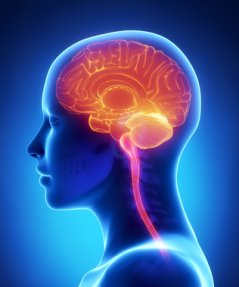 Vitamin C is extremely important for the brain’s blood vessels, nerve cells, neurotransmitters, and connective tissue. An estimated 10 percent of the adult population is vitamin C deficient without specific symptoms. According to a scientific article in the Danish journal Aktuel Videnskab, vitamin C deficiency during pregnancy may harm brain development in the fetus.
Vitamin C is extremely important for the brain’s blood vessels, nerve cells, neurotransmitters, and connective tissue. An estimated 10 percent of the adult population is vitamin C deficient without specific symptoms. According to a scientific article in the Danish journal Aktuel Videnskab, vitamin C deficiency during pregnancy may harm brain development in the fetus. We have relatively large quantities of zinc in our central nervous system where it plays a vital role in various physiological and pathological processes. Zinc is also important for brain development, various gene activities, the formation of new neurons, and the immune defense. What is more, zinc is a vital antioxidant that protects the brain against calcification and cell damage caused by oxidative stress. Zinc deficiency is a global problem and may be involved in a number of different neurological diseases – including stroke, cognitive impairment, Alzheimer’s disease, and depression, according to a new review article that is published in Biomolecules.
We have relatively large quantities of zinc in our central nervous system where it plays a vital role in various physiological and pathological processes. Zinc is also important for brain development, various gene activities, the formation of new neurons, and the immune defense. What is more, zinc is a vital antioxidant that protects the brain against calcification and cell damage caused by oxidative stress. Zinc deficiency is a global problem and may be involved in a number of different neurological diseases – including stroke, cognitive impairment, Alzheimer’s disease, and depression, according to a new review article that is published in Biomolecules. "After about one week of taking the Q10 supplement I could feel a huge difference," says 23-year old Alan Piccini, who has been suffering from extreme fatigue and muscle aches ever since he was a child.
"After about one week of taking the Q10 supplement I could feel a huge difference," says 23-year old Alan Piccini, who has been suffering from extreme fatigue and muscle aches ever since he was a child. “Taking capsules with co-enzyme Q10 has freed me of the severe side effects of my cholesterol lowering medicine,” Mrs Franken explains.
“Taking capsules with co-enzyme Q10 has freed me of the severe side effects of my cholesterol lowering medicine,” Mrs Franken explains.